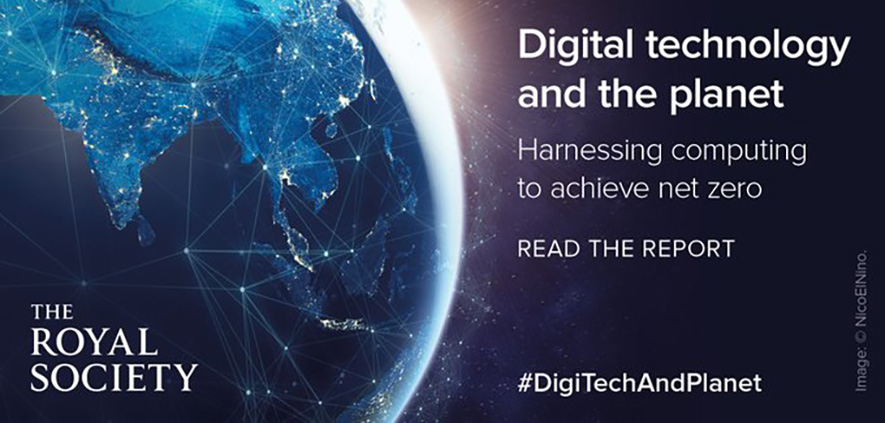
Submitted by Rachel Gardner on Thu, 03/12/2020 - 12:45
"There are many routes to net zero, but digital technology has a central role to play, no matter what sector or country you look at," says our own Professor Andy Hopper at the start of the Royal Society's new report 'Digital Technology and the Planet'.
The study of how computing could be harnessed to achieve net zero has been published today, Thursday 3 December 2020. Professor Hopper - Vice-President of the Royal Society and Professor of Computer Technology here - chaired the working group that produced the report.
The working group also included our colleagues Dr Emily Shuckburgh, Reader in Environmental Data Science; Professor Neil Lawrence, Deepmind Professor of Machine Learning, and Professor Andy Rice.
"This report shows how addressing barriers to innovation and harnessing the potential of our technology can make a sustainable net-zero future a reality."
Prof Andy Hopper
Digital technology, from smart meters to supercomputers, weather modelling and AI, could deliver nearly one third of the carbon emission reductions required by 2030, says the report.
The Digital Technology and the Planet: Harnessing computing to achieve net zero report (PDF) sets a roadmap for maximising data and digital technologies’ role in building a low carbon economy and a green recovery from COVID-19.
Tech companies must also play their part and lead by example on providing transparent information about the energy consumption and proportionality of their digital products and services, the report recommends. Digital technology’s estimated contribution to global emissions range from 1.4% to 5.9%, the report says.
"There are many routes to net zero, but digital technology has a central role to play, no matter what sector or country you look at," says Professor Andy Hopper. "This pandemic has accelerated the digital transition, so now is the time to take stock and ensure the sustainable development of future digital technologies and systems.
"Transparent technology can benefit consumers, the technology sector and the planet. If more people are confident in moving their computing onto the cloud, energy savings are possible using more efficient data centres.
"We must stay alert to digital demand outpacing the carbon emission reductions this transition promises. But this report shows how addressing barriers to innovation and harnessing the potential of our technology can make a sustainable net-zero future a reality."

